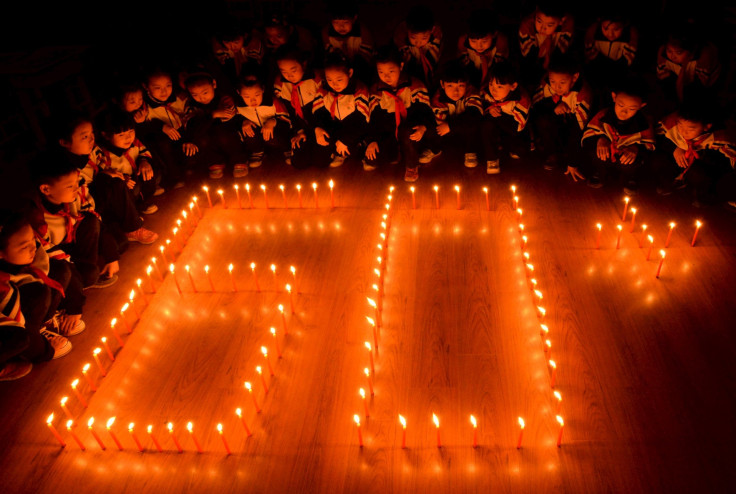Earth Hour 2015: Millions To Switch Off Lights For Global Annual Event

“On March 28, at 8:30 p.m., the United Nations will switch off its lights in support of the Earth Hour,” U.N. Secretary-General, Ban Ki-moon said, in a video address on Wednesday. Millions of people across 7,000 cities in over 170 countries are expected to participate in what has now become a global phenomenon. Here’s what you need to know about this annual event, held on the last Saturday of March.
What is Earth Hour and when did it begin?
The World Wide Fund For Nature (WWF) first held the event in Sydney, Australia on March 31, 2007, with the aim of garnering support for and promoting awareness of climate change action. According to WWF, over 2 million people and 2,000 businesses participated by turning off their lights for an hour at 7:30 p.m. local time.
Since then, the movement has received support from several other nations. In 2014, 162 nations participated in the event, held on March 29, making it the biggest Earth Hour in the organization’s history.
The United Nations, along with governments from several countries, has also supported the event. “WWF’s Earth Hour shows what is possible when we unite in support of a cause,” Ban said in his video message.
What does Earth Hour aim to achieve?
“Earth Hour is a highly visible symbolic act. One that millions of people can easily join in with,” the WWF says on its website. In a statement published on the Earth Hour website, the organization stated that the event is not an energy or carbon reduction exercise, but is “an initiative to encourage individuals, businesses and governments around the world to take accountability for their ecological footprint.”
A study published in journal Energy Research and Social Science in June 2014 compiled several measurements of changes in electricity demand in 10 countries over six years and found that the Earth Hour events reduced electricity consumption by an average of 4 percent.
In addition, the Earth Hour organizers have also attempted to use the event as a plank to raise funds for WWF’s environmental projects.
“The most exciting thing about Earth Hour this is year, is seeing the amount of projects and campaigns that are taking action beyond the hour,” Andy Ridley, CEO and co-founder of Earth Hour, said in a statement. “From crowdfunding to campaigns to protect The Great Barrier Reef or The Amazon, Earth Hour is harnessing the power of the crowd far beyond the hour.”
Earth Hour 2015: What to expect from the event
This year’s event assumes special significance as it comes just nine months before a crucial U.N. meeting on climate change in Paris.
“As the opportunity for action on climate change peaks in 2015, the world’s largest grassroots movement will raise its voice to change climate change,” WWF said in a statement.
Supporters from over 170 countries have pledged to participate by turning off lights between 8:30 p.m. and 9:30 p.m. local time on Saturday. During this hour, some of the world’s most famous landmarks are expected to turn their lights out. This includes the U.N. building in New York, London’s Houses of Parliament, Rio de Janeiro’s iconic statue of Christ the Redeemer, and the Eiffel Tower in Paris.
© Copyright IBTimes 2024. All rights reserved.






















